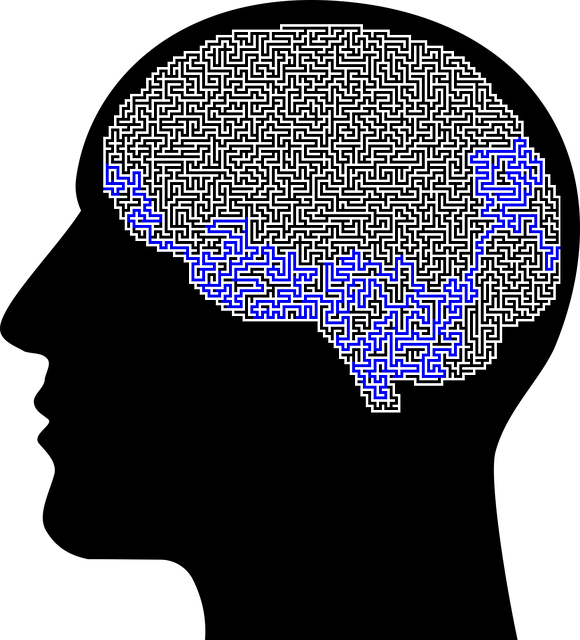Longmont Chronic Illness Therapy provides specialized support for individuals dealing with loss, grief, and bereavement due to chronic illness, offering tailored programs in a safe space. Through evidence-based practices, including social skills training and inner strength development, clients learn to express emotions, build resilience, and navigate their journey. The therapy integrates mental health policy advocacy and promotes healthy coping mechanisms like journal writing, mindfulness, and self-care routines, ultimately helping individuals find meaning and improve mental well-being post-bereavement.
Loss, grief, and bereavement are universal experiences that can profoundly impact individuals. This comprehensive guide explores these complex emotions, offering a deeper understanding of their effects on mental health. We delve into the critical role counseling plays in navigating loss, highlighting how professionals like Longmont Chronic Illness Therapy provide specialized support for those grappling with grief. Through an examination of effective strategies and techniques, this article equips readers with valuable insights to aid in the healing process.
- Understanding Loss, Grief, and Bereavement: A Comprehensive Overview
- The Role of Counseling in Navigating Difficulties After Loss
- Longmont Chronic Illness Therapy: Providing Support for Complex Situations
- Effective Strategies and Techniques for Grieving Individuals
Understanding Loss, Grief, and Bereavement: A Comprehensive Overview

Understanding loss, grief, and bereavement is a vital step in navigating the complex journey of healing. It involves recognizing and accepting the profound impact of losing someone or something significant. At Longmont Chronic Illness Therapy, we believe that every individual experiences grief uniquely, shaped by personal history, relationships, and cultural context. This process can range from intense emotions like deep sorrow and anger to more subtle cues such as loneliness and a sense of disorientation.
Grief is not a linear path but a multifaceted experience. It may involve periods of mourning, where the reality of loss sets in, followed by moments of acceptance and even occasional relapses into overwhelming sadness. Our mental health education programs design are tailored to provide support during these times, offering safe spaces for expression and promoting healthy coping mechanisms. Through social skills training and inner strength development, individuals can learn to navigate their emotions, build resilience, and gradually find meaning in their experiences.
The Role of Counseling in Navigating Difficulties After Loss

After a significant loss, individuals often find themselves navigating uncharted waters filled with profound grief and difficulty coping. This is where counseling plays a pivotal role in providing a safe space to process emotions and begin the journey of healing. Through compassionate support and evidence-based practices, therapists help clients understand and manage their feelings of sadness, anger, or guilt that may arise during this challenging period.
Longmont Chronic Illness Therapy offers specialized services for those dealing with loss, providing crisis intervention guidance tailored to individual needs. The process involves fostering inner strength development, enabling individuals to adapt and find meaning in the aftermath of their grief. By integrating mental health policy analysis and advocacy into treatment, therapists empower clients to access resources and support systems crucial for navigating bereavement and cultivating resilience over time.
Longmont Chronic Illness Therapy: Providing Support for Complex Situations

In complex situations involving loss, grief, and bereavement, Longmont Chronic Illness Therapy offers specialized support tailored to address unique challenges. Many individuals struggle with the emotional toll of chronic illness and subsequent losses, which can be exacerbated by the coping skills needed for day-to-day life. Our experienced therapists provide a safe space for clients to explore these intricate emotions, fostering self-esteem improvement and resilience.
Longmont Chronic Illness Therapy goes beyond traditional counseling by integrating public awareness campaigns that shed light on the unseen struggles of those dealing with chronic conditions and subsequent losses. We understand that grief is often multifaceted, encompassing not just the loss of a loved one but also the adjustments required when chronic illness changes one’s life trajectory. Our approach prioritizes individual needs, empowering clients to navigate these complex situations with enhanced coping skills development and emotional support.
Effective Strategies and Techniques for Grieving Individuals

Grieving individuals can find solace through various effective strategies and techniques offered by Longmont Chronic Illness Therapy. One crucial approach involves creating a supportive environment where clients feel safe to express their emotions openly. This often includes encouraging journal writing as a means to process thoughts and feelings, allowing for a form of self-reflection and emotional release. By documenting their journey, individuals can gain perspective and track their progress over time.
Additionally, fostering positive thinking and developing an accessible self-care routine are essential components of healing. Longmont Chronic Illness Therapy promotes mindfulness practices, such as meditation or deep breathing exercises, to enhance emotional intelligence and coping mechanisms. These techniques enable clients to navigate their grief in healthier ways, promoting overall mental health and a more positive outlook on life post-bereavement.
Loss, grief, and bereavement counseling are essential components in helping individuals navigate the complex landscape of emotional healing. As discussed, understanding these processes is crucial, and seeking support from professionals like those at Longmont Chronic Illness Therapy can provide much-needed guidance during challenging times. By employing effective strategies, such as cognitive-behavioral therapy and mindfulness practices, counselors enable grieving folks to process their emotions, adapt to life changes, and find meaning in their experiences. This journey may be labyrinthine, but with the right support, it is possible to transform sorrow into a catalyst for personal growth and resilience.














